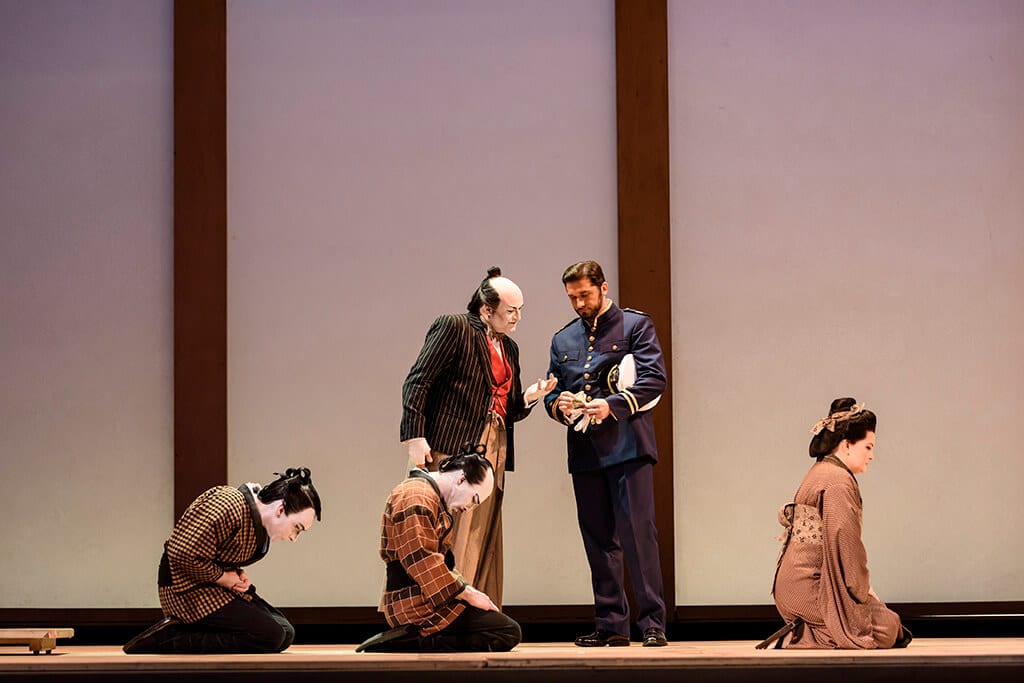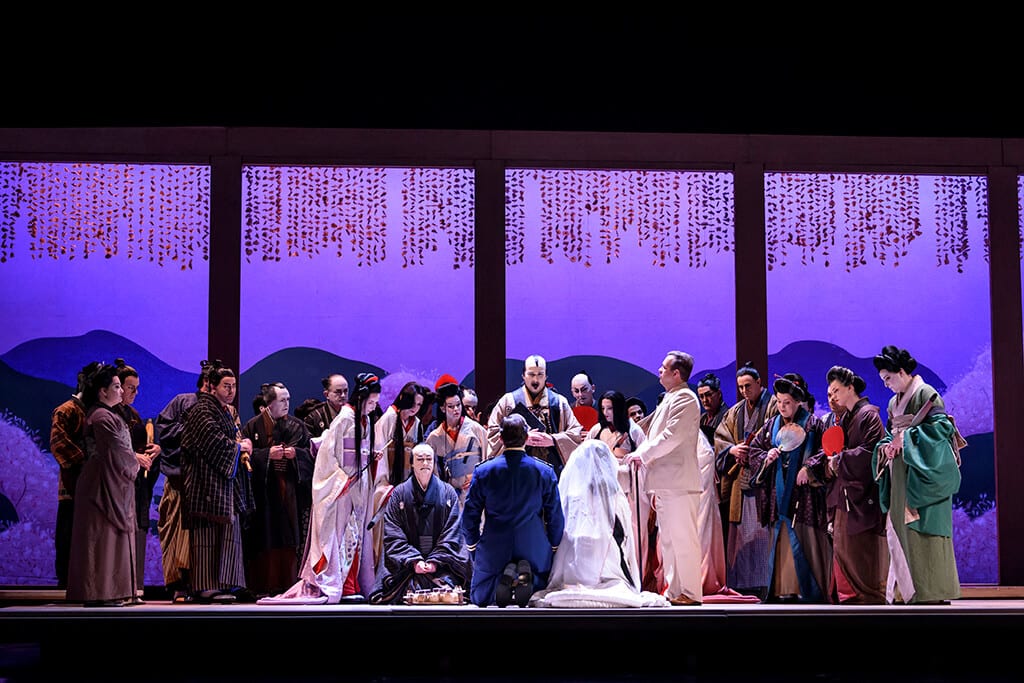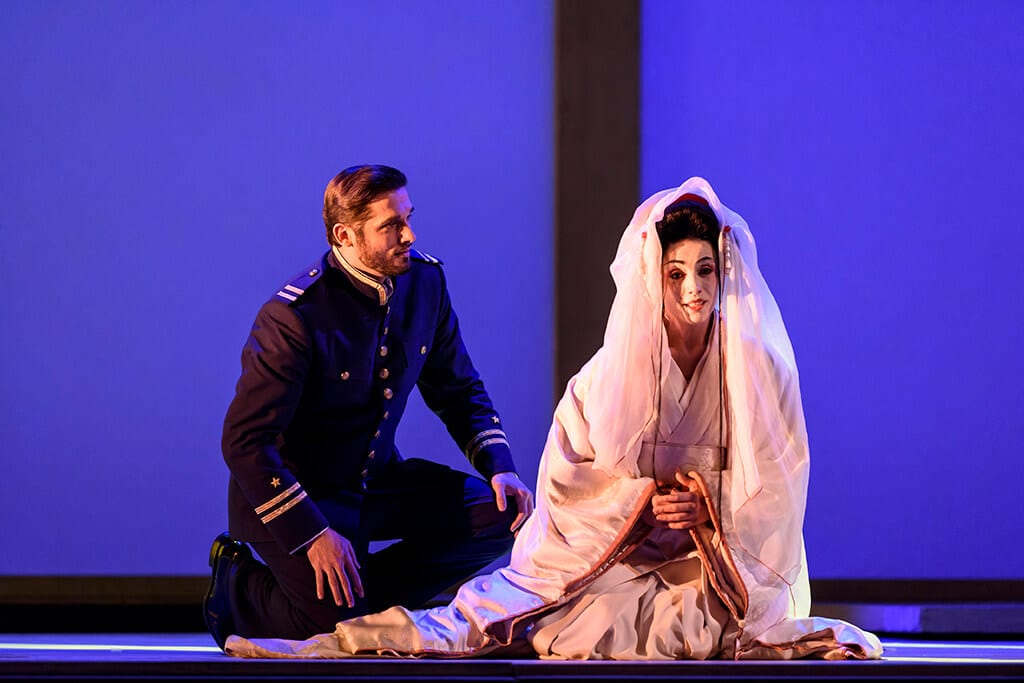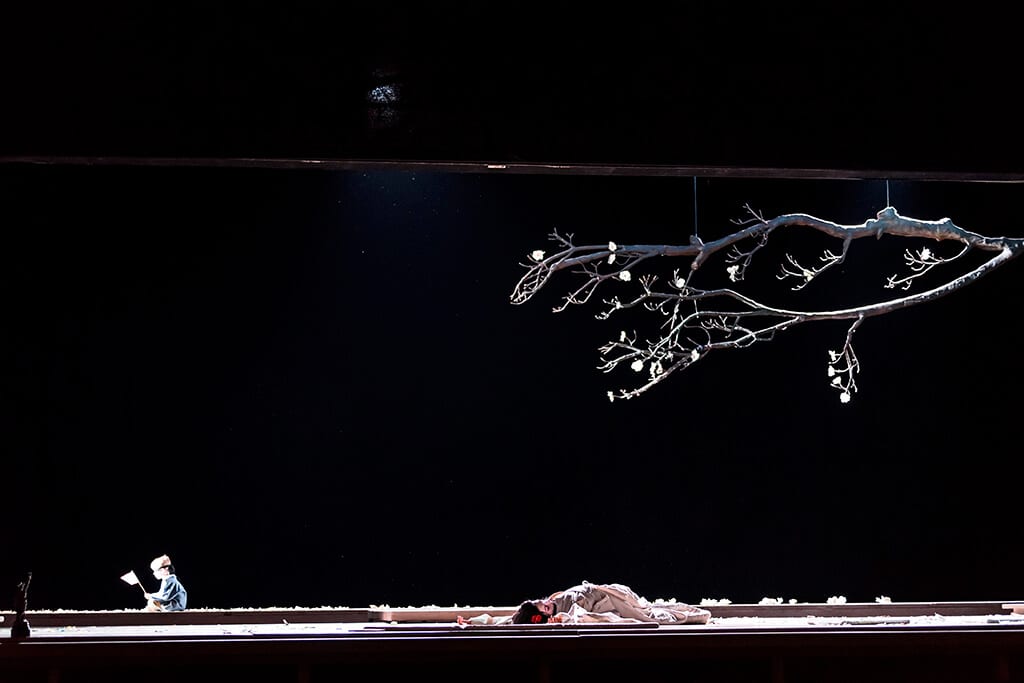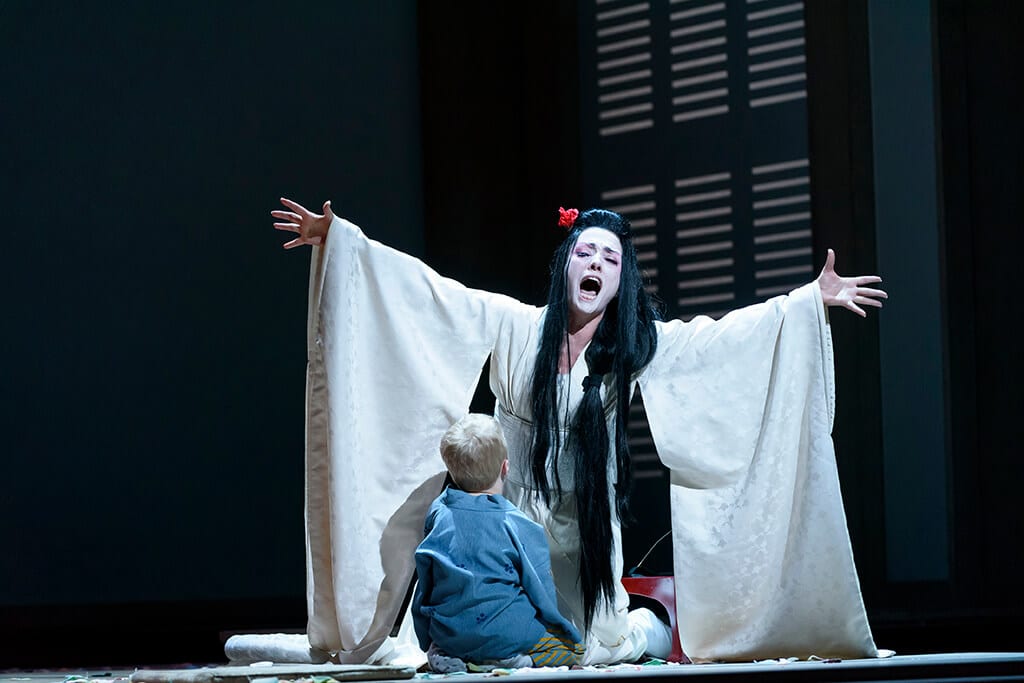Madam Butterfly seems to be the opera that houses turn to as a cash cow when times are hard. It is an opera with a small cast – if you skimp on Butterfly’s relatives at the wedding – and, for scenery, a few sliding panels and a Japanese-style backdrop of Nagasaki will do. So, to lift a production out of the ordinary, something special is needed. Covent Garden has achieved that with a performance where the centre of gravity is not the relationship between ‘poor little Butterfly’ and her temporary husband, the brutish Benjamin Franklin Pinkerton. Instead, it is the relationship of Butterfly and her maid Suzuki that drives the drama here and from Ermonela Jaho as Butterfly and Elizabeth DeShong as Suzuki we get performances of extraordinary power and dramatic truth.
The story of Madam Butterfly is simple. Lieutenant Pinkerton of the US Navy is stationed in Nagasaki and, to while away his weeks in port, he ‘marries’ 15 year old geisha, Butterfly. He leases a house on the hill overlooking the harbour “for 999 years, but with the option to break the contract each month”; he considers his ‘marriage’ to Butterfly to be on the same basis. Butterfly is from a once-wealthy family fallen on hard times and, despite all warnings from her friends, seems to believe that it is a true marriage and that, though Pinkerton’s ship soon leaves to return to the USA, he will return to her. After he leaves she bears him a son and when he returns three years later it is with his American wife. This story of the callous exploitation of a fifteen year old girl by a heartless older man who has no respect for her, and no understanding of the culture that she comes from, is at first sight a strange one for Puccini but from it he conjures some of his most powerful music.
Ermonela Jaho is a superb Butterfly – from the first moments, as we hear her off-stage arriving for the marriage ceremony, it is clear that here is a singer who has total mastery of the music. And for Jaho the great set piece aria Un Bel Di is not just an excuse for exquisite singing – Jaho sings it almost as if she is experiencing a fevered hallucination of the return of Pinkerton and the tragedy of her self-deception provides the dramatic heart of Jaho’s wonderful performance. But if Jaho is superb, Elizabeth DeShong as Suzuki is outstanding. She has a deep mezzo voice of stunning power and beauty – I have never heard the role sung better. But she also invests the portrayal of her devotion to Butterfly with a dramatic depth that is crucially important to the plot. Without it, there is a danger that Butterfly’s foolish love for Pinkerton makes her look pathetic rather than tragic. Here Suzuki’s powerful support allows Butterfly to show a resilient and determined side. And when Suzuki knocks the marriage broker, Goro, to the ground I was worried she really had injured him!
The roles of Pinkerton and of Sharpless, the ineffective American consul, are competently sung by Marcel Puente and Scott Hendricks. Puente, after a hesitant start, did find the voice to match Jaho in the great love duet at the end of the first act and Hendricks, who has a fine strong baritone voice, brought to his meeting with Butterfly’s son a real sense of warmth. But the heart and soul of this performance was very much in the relationship between the two women.
There is a third five-star performance and it is from the orchestra, under the baton of the Royal Opera’s magnificent music director, Antonio Pappano. I cannot think of a conductor who could bring a better sound out of the ROH orchestra. Some of the string playing on press night was simply magical. This is a very special Butterfly and, if you can’t get to Covent Garden, it is being shown live in many cinemas on 30 March.

